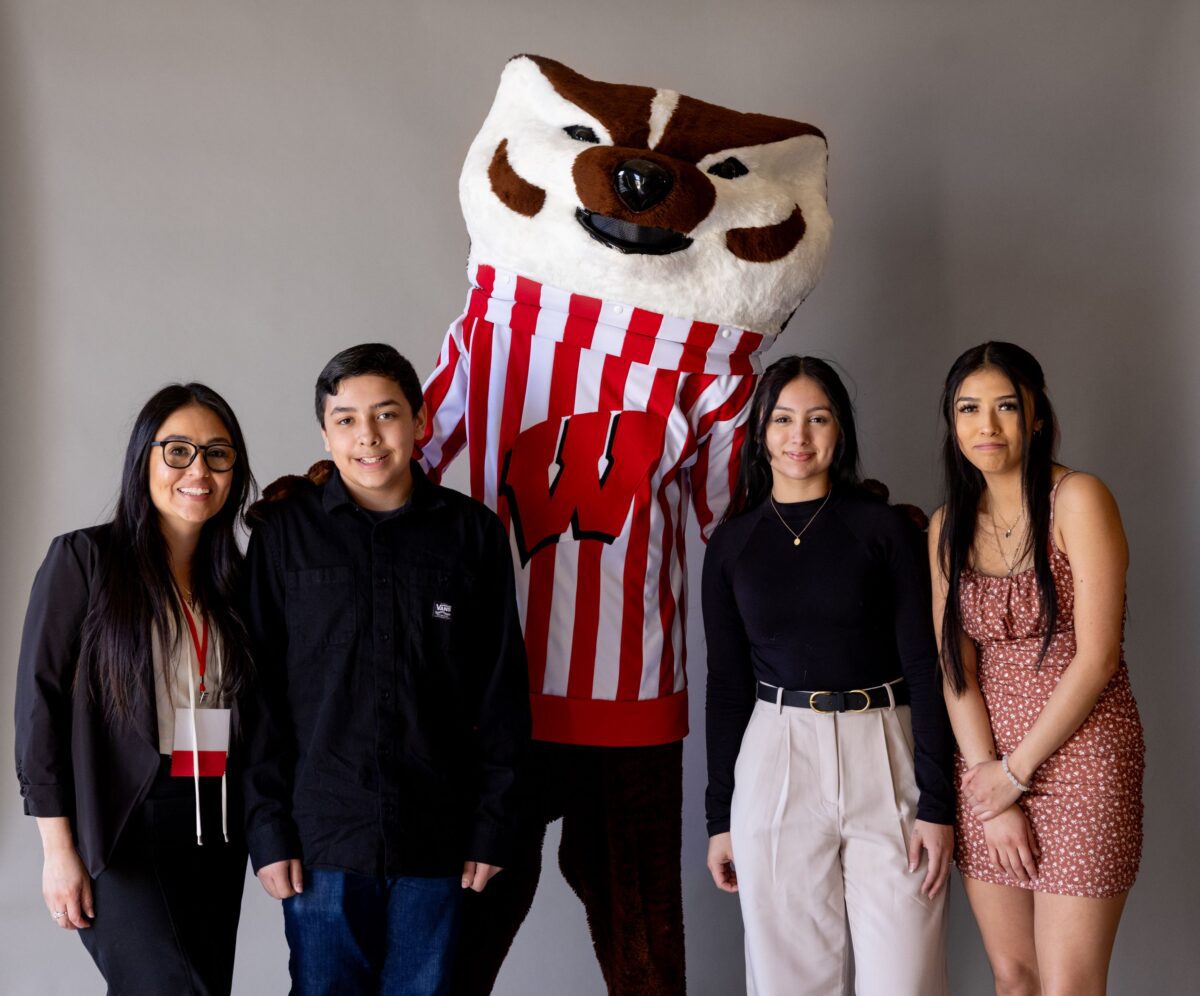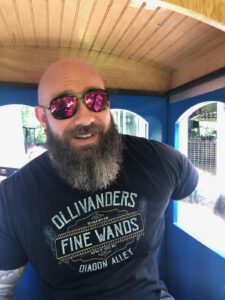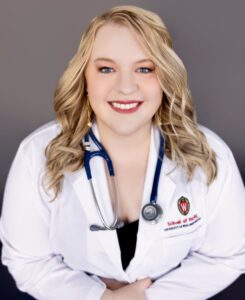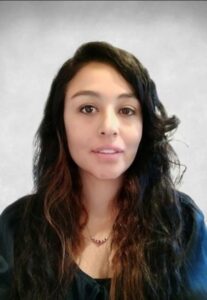
From a childhood gift igniting a lifelong passion for science to witnessing the heroism of healthcare workers during a global pandemic, the journeys of Dora Aranda, Jennifer Halvorson, and Norman Canestorp are as diverse as they are inspiring.
At the age of seven, Aranda received a microscope for Christmas, an event that would inspire her to become a scientist. Halvorson’s path to nursing was paved by the tenacity and compassion she witnessed among healthcare professionals during COVID-19. Faced with the uncertainty of frequent layoffs in his field, Canestorp resolved to return to his academic pursuits, determined to complete what he had started years earlier.
Their perseverance and dedication have not gone unnoticed. As recipients of the 2024 Outstanding Undergraduate Returning Adult Student award at UW–Madison, Aranda, Halvorson and Canestorp exemplify the transformative potential of resilience in the face of adversity. This award celebrates individuals whose exceptional determination and perseverance have enabled them to pursue academic work while contributing to their communities.
I asked them about their experiences and plans for the future.
What has been your motivation to finish your bachelor’s degree?

Norman Canestorp (NC): I had always wanted to finish my undergraduate degree. And my current field of work is notoriously unstable — lots of opportunities to be laid off. But my drive doesn’t come from either of those things. Speech-language pathology offers the potential for a career that is more fulfilling and embodies my personal values. I am excited for a human-centered career with the opportunity to make a difference in people’s lives. This is what has kept me motivated through these years.
Jennifer Halvoson (JH): After dropping out of college at age 19, I felt like I could do better and that I had grown since unsuccessfully completing college. I wanted to prove to myself that if I put my mind to it, I could accomplish the things I once thought were unachievable. Attending UW–Madison and graduating with a bachelor’s degree are two things in my life I never thought I would accomplish. I applied to UW–Madison in the spring of 2021 and was thrilled when I got the acceptance letter, never having even dreamed it would be possible. I finished a few prerequisites at UW–Madison and then applied for the nursing program’s fall 2022 cohort. My acceptance letter months later brought tears to my eyes. I want to be an example for other returning adult students like me and show that you can have a second chance if you’re willing to work hard and reach for it.
Dora Aranda (DA): My children are driving me. I want them to see that it’s never too late to start something you’re passionate about and how important it is to not give up when things get difficult. I am a first-generation college student so it is important for me to finish my journey. I love to learn and it’s been my personal goal to become a scientist ever since I was a child so this motivates me every time I feel like giving up. It hasn’t been an easy path, but I am so happy that I have made it this far.
Tell us about your previous college experiences.
NC: Once upon a time, I was a traditional student first at the Milwaukee School of Engineering, then at UW–Eau Claire. I lacked both the work ethic and an understanding of what I really wanted to do with my life. I entered the workforce full-time after being placed on academic probation at UW–Eau Claire. After being laid off in 2018, I knew it was time to return to school. I started at UW–Madison through the Badger Ready program.

JH: I had a very bumpy educational journey prior to attending UW–Madison. After dropping out of college, I worked minimum wage jobs for a while, not knowing what I wanted to do with my life. I eventually went back to school at Madison Area Technical College (MATC) – Reedsburg. There I started with the general courses needed to finish an associate degree in liberal arts which I completed from UW Colleges in 2015. I then applied to the surgical technology program at the MATC Truax campus and graduated with a technical diploma in the spring of 2016. From there, I started my job at Reedsburg Area Medical Center and have worked there as a surgical technologist for the last eight years. I decided to go back to school for my nursing degree in 2019. I took more prerequisite classes while continuing to work a full-time job in addition to surgery call shift hours.
DA: I attended college for the first time in fall of 2003 and did 3 semesters before dropping out. I went to work full-time to support my family and had my daughter at age 20. In 2018, I decided to go back to school and started at Madison Area Technical College. It wasn’t easy because I had to relearn everything. Learning how to be a student and how to navigate college, being the only one in my family to attend at the time, was not easy. I moved from California so I didn’t know anyone here and didn’t have anyone to go to for help. But I found my community in the TRIO program, a student support services program for students who are first-generation, low-income or disabled. There I got all the resources I needed to be successful. During the pandemic, in the spring of 2021, I transferred to UW–Madison. Trying to learn online with such a heavy course load made for a challenging semester. Once in-person classes started again, I tried to find a community but it wasn’t easy. There were so many times I felt like I didn’t belong and dealt with imposter syndrome.
Where did you find support while you were in school?

DA: My greatest supporters have been my husband and my children. They have been through it all with me. It was a big family commitment for me to go back to school, and it was going to take everyone’s help to make that happen — even if it was just to allow me to have the time to study after dinner or on the weekends. On campus, my greatest supporters were my advisors, both Amy Betzelberger and Ryan Grady; and all the wonderful programs I have been a part of, like The Center for Educational Opportunity (CeO) and Academic Coaching to Thrive and Succeed (ACTS). I also utilized the transfer center, chemistry learning center and physics learning center. I truly appreciate all the people who have helped me along the way.
JH: My family and my coworkers have been the biggest support systems for me. More recently, my nursing honors advisor, Elliot Tebbe, has been a great support for me. He always encouraged me to look forward to what I can accomplish and to go for it. Everyone who has been there to support me through this journey has always believed in me even when I haven’t believed in myself, and that means the world to me.
NC: I have received the greatest amount of support from my instructors and teaching assistants, most especially Dr. Misha Finney. She has listened to me, advised me and guided me so many times over the last few years. She is by far my greatest supporter.
What advice do you have for other adults considering a return to school?
NC: I strongly believe in getting an education, so I want to just say, “do it.” However, I know college is not the best path for everyone. But if you have some college experience, then you know what you are getting into. In that case, my advice is this: Don’t let anything get in your way. Be flexible. Alter your plan, if necessary. But don’t let anything stop you. Life will always present obstacles. Maybe it will take longer than anticipated. But the important thing is that you finish, not when you finish. You can overcome the obstacles. So overcome them.
JH: It’s never too late to accomplish your dreams. No one says it’s going to be easy but it sure will be worth trying for and accomplishing in the end. No matter how long it takes you to get there, if you believe in yourself and work hard, your drive and focus will get you there.
DA: I would tell them not to compare themselves to other students but to find their own path, one that will benefit them. There’s no time limit, so go at a pace that’s comfortable for you. Find a community on campus, some place you can go to for support, and always communicate with your professors early in the semester because they are always willing to help; all you have to do is ask.
What are your career/educational goals going forward?
JH: At age 32, I am graduating with a bachelor’s degree in nursing and could not be more excited! It has been a long journey to this amazing result. I have a job lined up at UW Health on the Cardio-Thoracic/Cardio-Vascular ICU that I will start after graduation. My educational goals include getting a master’s degree in something related to health policy and then a PhD in Nursing. My hope is to become a nurse educator and researcher after establishing myself and refining my skills as a nurse.
DA: My career goal is to be an analytical scientist. I actually just accepted a job offer to be an analytical scientist in the Small Molecule Department at Thermo Fisher Scientific!
NC: I will somehow, somewhere attend graduate school for a clinical master’s degree and become a speech language pathologist.
Congratulations again to Aranda, Halvoson and Canestorp as well as to these nominees and finalists for the award:
- Tsurit Barhama
- Joseph Rausch
- James Spoden
- Qianna Loomis
- Rebecca Parmentier
- Hollie Wierschke
Read about the returning adult student awards event and hear more student stories. See UW–Madison’s Adult Career and Special Student Services website for more information and resources for returning adult students.